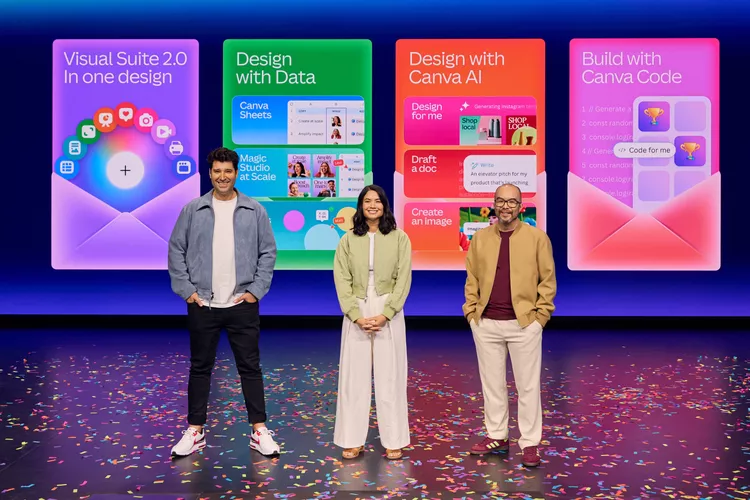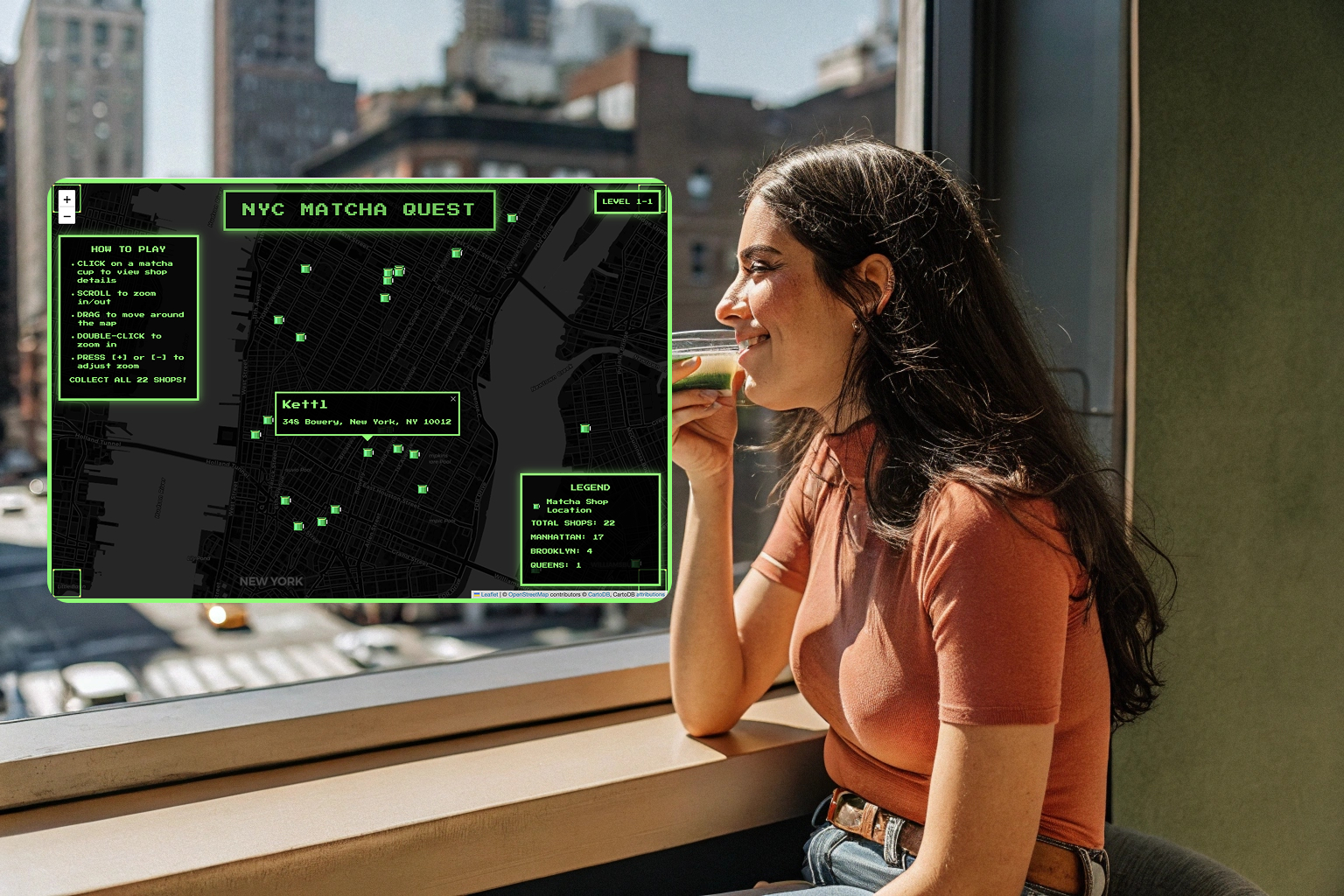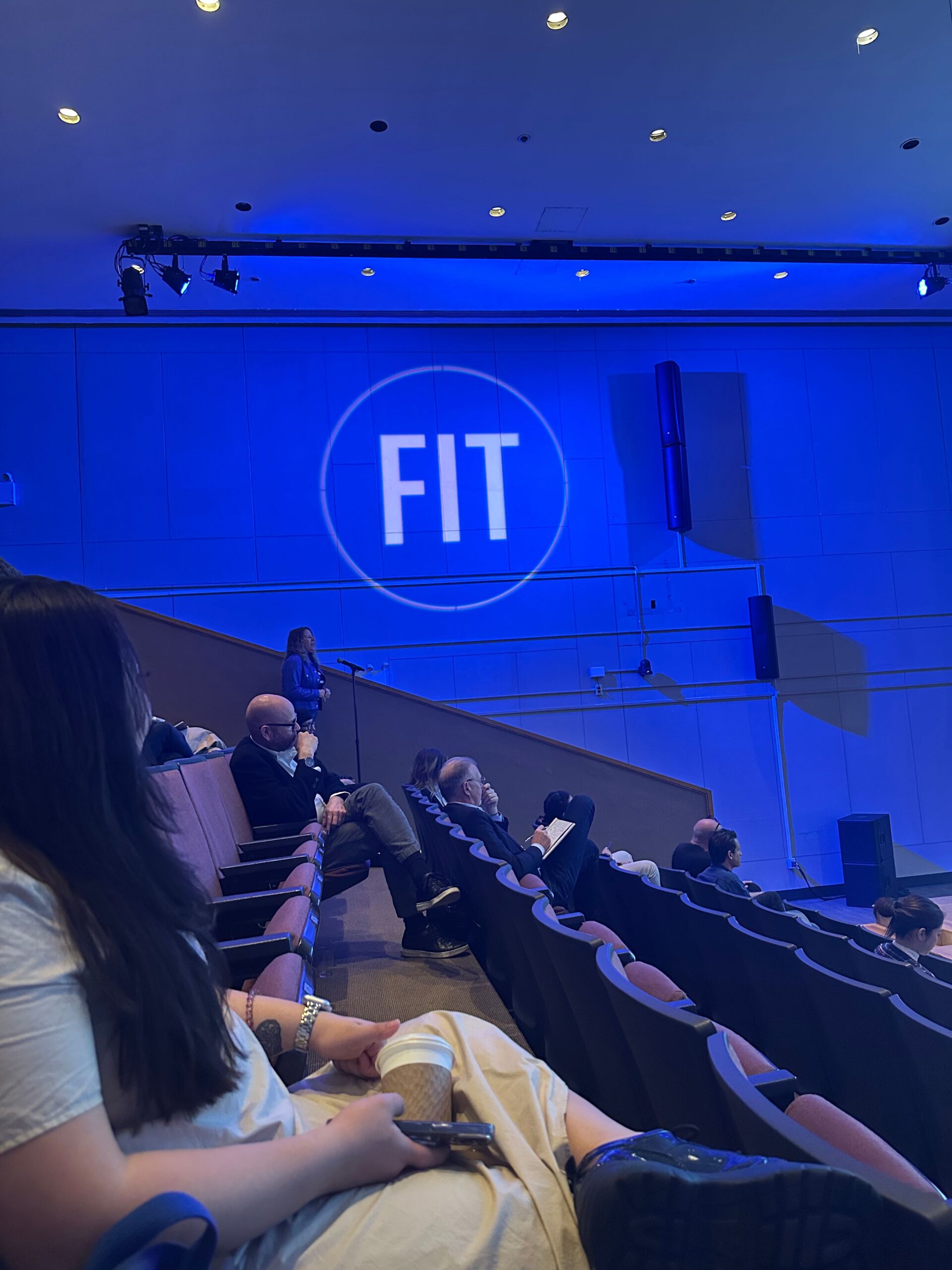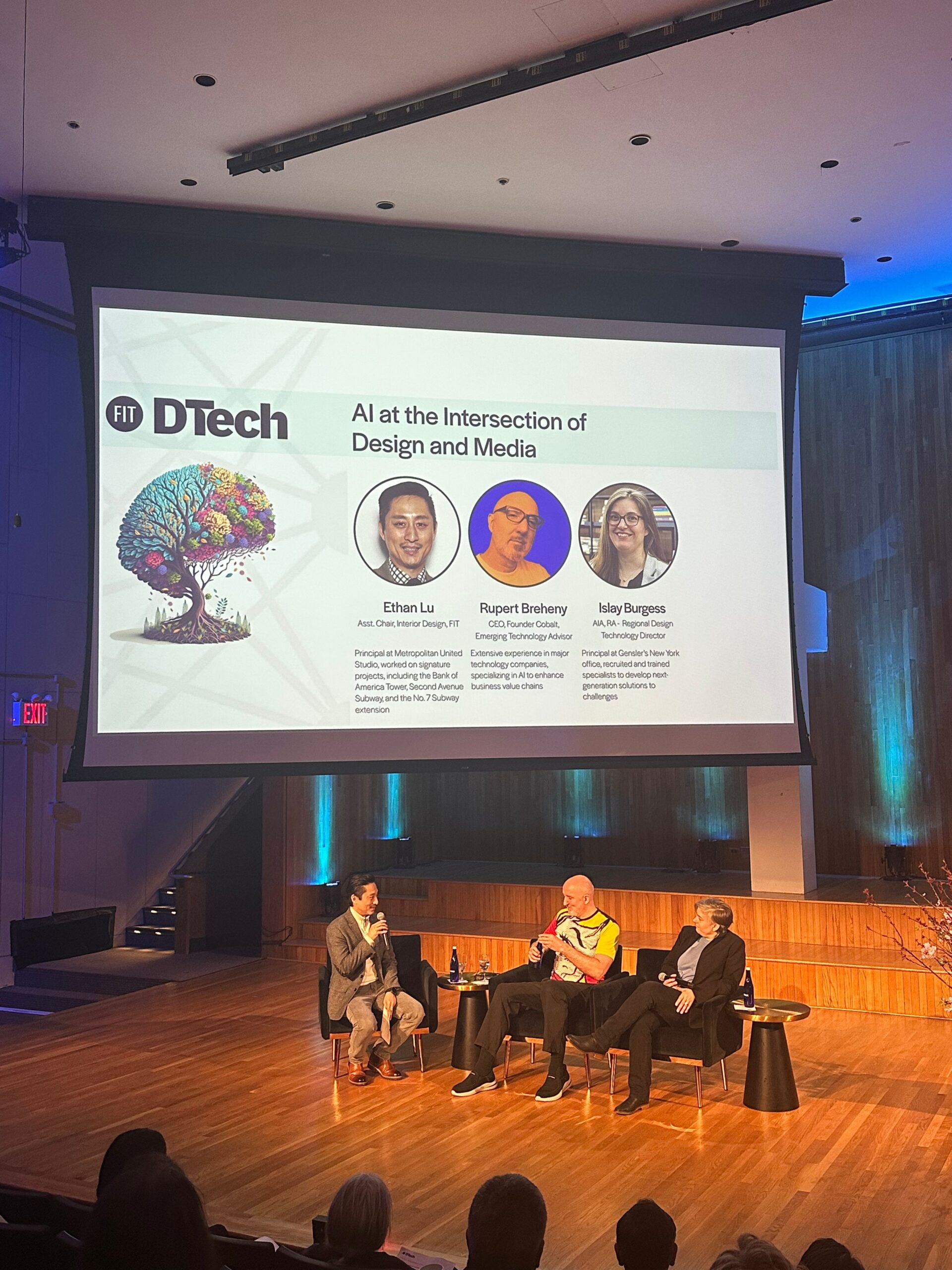OpenAI’s Takedown Requests to Google: What’s Behind the Latest AI Drama?
OpenAI’s Takedown Requests to Google
Recently, OpenAI’s takedown requests show that they requested that Google remove several ChatGPT-related search results. According to Torrent Freak, these include links to apps and articles that allegedly infringe on OpenAI’s rights and approved uses of their API. This includes two apps that appeared on both iOS and Google Play App Stores.
ChatGPT’s Rise to Fame
Over the last few months, ChatGPT has been taking over the internet in more ways than one. As a product launch of this level, this level of attention is what is usually expected. However, it seems that not everyone is happy with the chatbot’s success.
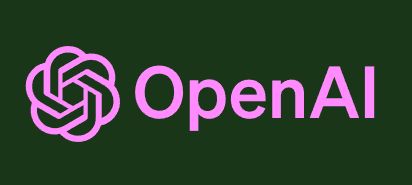
Legitimacy of OpenAI’s Takedown Requests
It’s worth noting that this isn’t the first time that OpenAI has sent takedown notices to Google. In December, the company asked for the removal of an AI writing tool’s GitHub repository. However, it’s difficult to verify the legitimacy of these requests, as there have been cases of fakes claiming to be reputable rightsholders in the past. Therefore, it’s important to approach these claims with a degree of skepticism.
Clarifications from ChatGPT on Takedown Requests
Despite the controversy surrounding OpenAI’s takedown requests, ChatGPT explained that sending DMCA requests to Google is a common legal mechanism to request the removal of copyrighted material from search results. OpenAI may send such requests if they find that their copyrighted material is being distributed illegally by a third-party website that appears in Google’s search results.
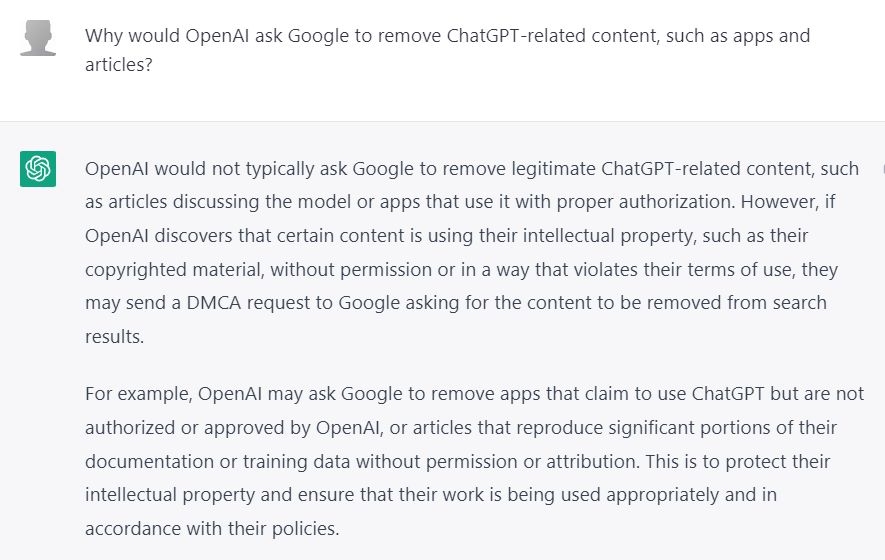
ChatGPT also clarified that OpenAI would not typically ask Google to remove URLs with legitimate ChatGPT-related content, such as articles discussing the technology or apps that use ChatGPT with proper authorization.
The Wider Implications of AI and Copyright Law
The use of AI technology raises novel questions about copyright law and fair use. As more and more businesses invest in AI, it’s likely that these questions will become increasingly urgent. The recent takedown notice from OpenAI is just one example of how these issues are beginning to play out in the real world.
The Need for a Clear Legal Framework for AI Technology
Despite these concerns, it’s clear that the development of AI technology is still in its early stages. As more and more people begin to use AI in their everyday lives, there will be a growing need for a clear and comprehensive legal framework that takes into account the unique challenges posed by this technology. In the meantime, it’s up to all of us to stay informed and engaged and to ensure that the potential benefits of AI are balanced against the potential risks.
Source: TorrentFreak

